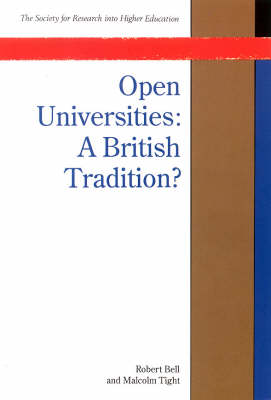Society for Research into Higher Education
2 total works
"Open Universities: A British Tradition" challenges the notion that the open university is a recent invention. It argues that in Britain there is a long and varied tradition of such developments, and that there has been a significant 20th-century reduction in the open-ness of our universities, particularly in the period from the 1950s to the 1970s. Selected examples of open universities from the 19th and 20th centuries are examined and compared. Particular attention is paid to the provision made by the University of London in its 19th-century role as an examining board, and later through its external degree system; to the similar role performed, for very different reasons, by the Royal University of Ireland before World War I; and to the work of St Andrews University in offering an external degree-level qualification for women between 1877 and 1931. Other examples discussed range from Oxford and Cambridge, in their pre-World War II guise, and the 19th-century Scottish universities, to the correspondence colleges and the university extension movement.
The authors also give consideration to the present Open University and to other contemporary models of distance education and open learning; and they provide a historical and theoretical framework within these developments can be better understood.
The authors also give consideration to the present Open University and to other contemporary models of distance education and open learning; and they provide a historical and theoretical framework within these developments can be better understood.
This book aims to provide a comprehensive analysis of the past, present and future of part-time education in the United Kingdom. It examines the institutions and students involved, and describes the various kinds of provision available. Current provision in the United Kingdom is related to its historical development, and compared with the position in other developed countries. By looking at higher education from a part-time perspective, the book intends to enlarge the understanding of higher education as a whole. The final part of the book attempts to do this by comparing the value of part-time and full-time forms of provision. Alternative models of higher education are explored, and the prospects for future development are reviewed. The book concludes that, while part-time education has been seriously undervalued in recent years, it offers a viable model for a significantly expanded, more flexible and more relevant higher education system in the future.

